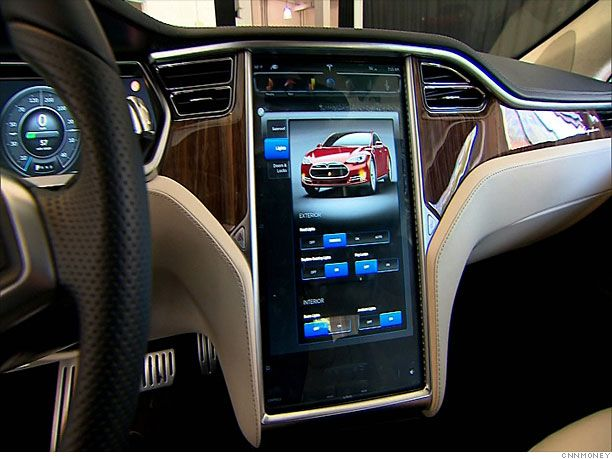In 2023, the electric vehicle (EV) market reached a milestone with over 20 million units sold globally, as reported by Bloomberg Green. This surge is not just a testament to the growing shift towards sustainable living but also highlights the significant role of AI-driven innovations in redefining transportation. The integration of artificial intelligence in electric vehicles is paving the way for a future where transportation is not only efficient but also smarter and more sustainable. In this article, we’ll explore how these AI-driven EV innovations are shaping the future of transportation, from autonomous driving capabilities to enhanced battery management systems.
The Rise of Autonomous Driving:
AI-Powered Navigation Systems
One of the most transformative AI applications in EVs is autonomous driving technology. Companies like Tesla, Rivian, and Hyundai are at the forefront, pushing the boundaries with their advanced driver-assistance systems (ADAS). These systems utilize AI algorithms to process vast amounts of data from sensors and cameras, enabling vehicles to navigate safely and efficiently.
- Tesla’s Autopilot and Full Self-Driving (FSD): Tesla’s AI-driven systems are designed to handle complex driving scenarios, offering features like lane changing, parking assistance, and even traffic light recognition.
- Waymo’s Self-Driving Taxis: Waymo, a subsidiary of Alphabet, has been testing self-driving taxis in Phoenix, Arizona, proving the viability of AI in urban transportation.
Safety and Efficiency
Autonomous driving not only enhances convenience but also improves safety. According to the National Highway Traffic Safety Administration (NHTSA), human error accounts for 94% of all traffic accidents. AI can significantly reduce this margin by anticipating and reacting to potential hazards faster than a human driver.
Smart Battery Management:
AI in Battery Optimization
Battery technology is the heart of EV performance, and AI plays a crucial role in optimizing battery life and efficiency. Brands like Lucid Motors and BYD utilize AI-driven software to monitor and manage battery health.
- Predictive Maintenance: AI systems can predict battery degradation and suggest maintenance before a failure occurs, reducing downtime and extending battery life.
- Dynamic Charging Optimization: AI algorithms help optimize charging patterns to prevent overcharging and overheating, ensuring long-term battery health.
Energy Efficiency
AI enhances energy efficiency by learning and adapting to driving habits. For instance, the Nissan Leaf’s AI system analyzes driver behavior to optimize energy consumption, maximizing the distance covered per charge.
Enhanced User Experience:
AI-Personalized Interiors
The integration of AI in EVs goes beyond driving capabilities. AI is revolutionizing the in-car experience by personalizing features based on user preferences.
- Voice-Activated Controls: Brands like Ford EV and Volkswagen are incorporating AI-driven voice commands, allowing drivers to control navigation, climate settings, and entertainment systems without taking their hands off the wheel.
- Adaptive Cruise Control: AI adjusts the vehicle’s speed in real-time to maintain safe distances from other vehicles, enhancing comfort and safety.
Practical Value:
Tips for Embracing AI-Driven EVs
For consumers looking to embrace AI-driven EVs, here are a few practical tips:
- Research Your Options: Compare models from different brands to find the right blend of AI features and sustainability.
- Understand Charging Needs: Familiarize yourself with the charging infrastructure in your area. Brands like Tesla offer supercharger networks that make charging convenient.
- Stay Updated on Software: Regularly update your vehicle’s software to ensure you have the latest AI advancements and safety features.
Where to Buy and What to Compare
- Dealerships and Online Platforms: Many automakers now offer direct sales online. Compare prices and features on platforms like Electrek and InsideEVs.
- Battery Life and Range: Consider the battery life and range when selecting an EV. Look for models with AI-driven battery management for optimal performance.
Conclusion:
AI-driven EV innovations are not just influencing the automotive industry; they are reshaping the entire landscape of transportation. By enhancing safety, efficiency, and user experience, AI is steering us towards a future where transportation is smarter and more sustainable. As these technologies continue to evolve, we can expect even greater advancements in autonomous driving, battery management, and personalized user experiences. Are you ready to embrace the future of transportation? Share your thoughts and join the conversation about how AI is transforming our daily commutes. With the blend of AI and EVs, the road ahead looks promising and electrifying!

